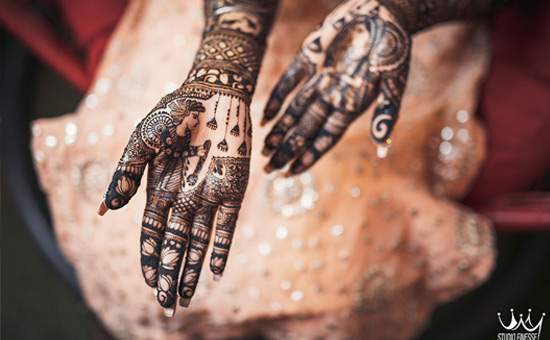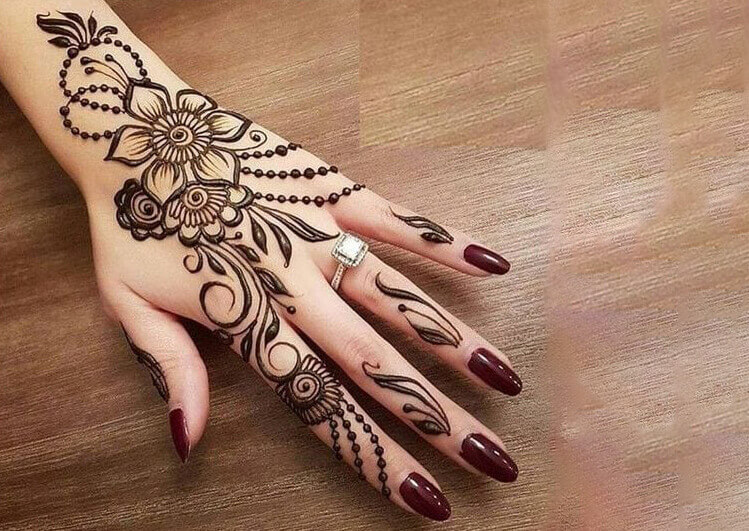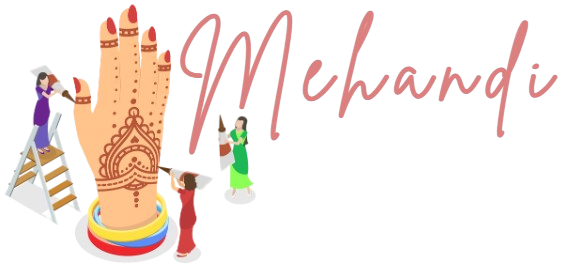Mehandi, also known as henna, is not merely an element of cultural significance—it is an art form that transcends regions, generations, and occasions. Its application is a centuries-old tradition, found in Indian, Arabic, Pakistani, and North African cultures. Whether it is a wedding, festival, or casual adornment, mehandi designs continue to play a central role in beauty and fashion.

Historical Roots of Mehandi Art
The origins of mehandi art trace back to ancient Egypt and India, where it was used for both decorative and therapeutic purposes. Traditionally, the paste is made from crushed henna leaves, mixed with water, lemon juice, and essential oils to create a natural dye. Its cooling effect made it a favorite in hot climates, and over time, it gained popularity as a form of body art.
In Indian culture, mehandi is deeply rooted in customs and is considered a symbol of positivity. Applying it during weddings, Karva Chauth, Eid, and other auspicious occasions is seen as a way to invoke blessings.
Types of Mehandi Designs
There are various styles of mehandi art, and each type reflects the heritage and creativity of its origin.
Table 1: Popular Mehandi Design Styles
| Style | Origin | Features |
| Indian | India | Fills palm with intricate motifs |
| Arabic | Middle East | Bold lines and floral motifs |
| Pakistani | Pakistan | Combination of Indian and Arabic |
| Moroccan | Morocco | Geometric and tribal patterns |
| Western | Global | Temporary tattoos, minimalist style |
Import ance of Mehandi in Indian Culture
ance of Mehandi in Indian Culture
The presence of mehandi in ceremonies is not just about aesthetics; it holds cultural symbolism. It represents joy, good luck, and prosperity. Especially in Indian weddings, the mehandi design front on a bride’s hands is not just for decoration but reflects emotion, love, and tradition.
A popular belief is that the darker the mehandi stain, the deeper the love between partners. This emotional connection to a seemingly simple leaf paste makes the tradition even more endearing.
Modern Adaptation and Innovation
Today’s generation blends tradition with innovation. Digital platforms are flooded with creative mehandi designs, offering endless inspiration. Mehandi artists now experiment with new shapes, patterns, and colors to make every design unique.
Social media has significantly influenced how trends evolve. Brides and artists frequently post their unique mehandi art, making it easier for others to find inspiration for their big day.

Understanding Mehandi Patterns
Mehandi patterns range from simple to highly intricate. Each element has its own meaning. Here’s a quick guide:

Table 2: Common Mehandi Motifs and Their Meanings
| Motif | Symbolism |
| Peacock | Beauty and elegance |
| Paisley | Fertility and luck
|
| Lotus | Purity and enlightenment |
| Meshwork | Protection |
| Mandala | Unity and completeness |
| Mehandi bel | Graceful flow and continuity |
The mehandi bel, which translates to a henna vine, is a recurrent element in many patterns. It adds continuity and elegance to any mehandi design, weaving through the palm or fingers like nature’s thread.
Front Hand Mehandi Designs: A Canvas of Expression
Front hand mehandi designs are like a blank canvas waiting for storytelling. Artists often focus more detail on the front of the hand, where visibility is highest. These mehandi design front styles often include:
- Full palm coverage
- Symmetrical patterns
- Bridal name initials hidden in the design
- Mandala centerpieces
Whether minimal or elaborate, these designs are key to traditional bridal makeup.
Step-by-Step Guide: How to Apply Mehandi at Home
If you’re planning to do mehandi yourself, here’s a simple step-by-step guide:
Table 3: DIY Mehandi Application
| Step | Instructions |
| 1 | Clean hands thoroughly |
| 2 | Mix mehandi powder with lemon juice and oil |
| 3 | Fill the paste in a cone |
| 4 | Trace the outline first, then fill in details |
| 5 | Let it dry for 6–8 hours |
| 6 | Remove without washing for a darker stain |
Pro Tip: Apply a mixture of lemon juice and sugar to make the design stay longer and appear darker.
Mehandi in Pop Culture
Mehandi isn’t limited to weddings or festivals anymore. With the advent of cinema and pop culture, it has found a place in movies, fashion shows, and even music videos.
The movie “Mehandi Laga Ke Rakhna 2” reintroduced traditional rituals like mehandi to younger audiences in a relatable way. This sequel not only captured the emotions tied to weddings but also highlighted how such rituals remain timeless even in modern love stories.
Health Benefits of Mehandi
Mehandi isn’t just decorative; it also has health benefits.
Table 4: Health Benefits of Mehandi
| Benefit | Explanation |
| Cooling Effect | Reduces body heat and stress |
| Antibacterial | Helps prevent infections |
| Natural Hair Conditioner | Strengthens and darkens hair |
| Anti-inflammatory | Soothes minor wounds and rashes |
Its use in Ayurvedic medicine is another testament to its versatility.
Bridal Mehandi: A Ritual Beyond Beauty
For brides, mehandi application is not just another beauty treatment—it’s a cherished event. Families and friends gather, traditional songs are sung, and the bride sits surrounded by love and laughter. Often, the bride’s name or the groom’s initials are cleverly hidden in the design, leading to fun post-wedding games.
Mehandi Artists: The Unsung Heroes
Behind every stunning mehandi design is a skilled artist who understands the depth of tradition and the intricacies of art. These professionals are not just painters—they’re storytellers who bring culture, creativity, and emotion to life through their designs.
Tips to Make Your Mehandi Last Longer
You want that beautiful design to stay as long as possible. Here are some proven tips:
- Avoid washing hands for at least 6 hours after application.
- Rub clove smoke over the design to deepen the color.
- Moisturize regularly but avoid too much oil.
- Stay away from water and detergents in the first 24 hours.
Mehandi for Every Occasion
Whether it’s Diwali, Eid, Teej, or just a weekend party, there is a design for every moment. The versatility of mehandi designs makes them perfect for casual and formal occasions alike.
Designs can range from finger-only patterns to elaborate sleeves that cover the entire hand and arm. Simpler designs are ideal for kids and teenagers, while bridal patterns can take hours to complete due to their detail.
Final Thoughts
The beauty of mehandi art lies not just in its visual appeal, but in the emotions it evokes and the memories it creates. From ancient traditions to modern adaptations, from mehandi bel vines to mehandi design front patterns, this art form continues to evolve while remaining true to its roots.
So whether you’re preparing for a big event or simply want to adorn your hands, never underestimate the charm and power of mehandi. Let your hands speak the language of heritage and beauty—through every swirl, dot, and pattern.

